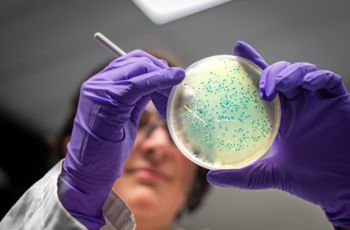Integrative medicine stands at the forefront of a new era in health care, redefining the conventional approach to healing and wellness by embracing the interconnectedness of mental, physical, and spiritual health. Unlike traditional medical practices that often focus solely on alleviating symptoms, integrative medicine seeks to address the root causes of illness while nurturing the body’s innate capacity for healing.
By combining conventional medicine with evidence-based complementary therapies, this health care specialization equips practitioners with a comprehensive toolkit to promote health and vitality for individuals and communities.
As the health care landscape continues to evolve, integrative medicine is emerging as a catalyst for proactive, preventive care, empowering people to take control of their health journeys by fostering a paradigm shift toward whole-person-centered practices. Keep reading to discover more about this integrated approach to long-term patient well-being.
Understanding the principles of integrative medicine
At its core, integrative medicine focuses on treating the whole person — mind, body, and spirit — rather than simply addressing isolated symptoms or diseases. It emphasizes the partnership between the patient and practitioner with the goal of promoting optimal health and wellness.
This is accomplished by addressing the root causes of illness, supporting the body’s natural healing mechanisms, and empowering individuals to take an active role in their personal health care.
Integrative medicine aims to be proactive, predictive, and preventative by focusing on the following key principles and practices:
- Holistic approach: Integrative medicine considers the interconnectedness of various aspects of well-being, including physical, mental, emotional, and spiritual health. By addressing these intertwined factors, practitioners can proactively identify potential imbalances or risk factors before they manifest as illness or disease.
- Patient-centered care: Integrative medicine underlines the importance of individualized care plans tailored to each patient’s unique needs, preferences, and lifestyle factors. This approach allows practitioners to work with patients to identify and address underlying issues that may contribute to poor health outcomes, developing a personalized well-being plan collaboratively.
- Preventive strategies: Integrative medicine places a strong emphasis on preventive measures to promote overall health and wellness. This may include lifestyle modifications such as healthy diet and nutrition, regular physical activity, and restorative sleep coupled with techniques to manage stress and avoid harmful habits like substance use. By helping patients adopt these healthy lifestyle behaviors, integrative medicine practitioners work to reduce the risk of chronic diseases and improve long-term health outcomes, promoting longevity and healthspan.
- Early detection and intervention: Integrative medicine often incorporates tools and technologies for early detection of health issues, allowing for timely intervention and treatment. This may involve screenings, diagnostic tests, and assessments to identify potential risk factors or imbalances before they progress to more serious conditions.
Overall, practitioners with a foundational understanding of integrative medicine seek to shift the health care paradigm from reactive, symptom-based treatment to proactive, preventive care that fosters well-being and empowers individuals to take an active role in maintaining their whole health.
Examples of integrative medicine
Integrative medicine combines the best practices of conventional Western medicine with evidence-based complementary therapies. By blending these approaches, practitioners can offer a comprehensive range of treatment options that address the diverse needs of patients while minimizing the reliance on pharmaceutical intervention or invasive procedures.
In addition to conventional medical treatments, integrative medicine can incorporate various healing modalities, such as:
- Acupuncture
- Chiropractic care
- Herbal medicine
- Mindfulness
- Counseling
- Meditation
- Yoga therapy
- Nutrition and dietary supplements
- Massage therapy
Complementary modalities like those listed above have been around for hundreds of years (if not centuries) and have become much more common and accessible throughout the U.S. An increasing number of integrative medicine practitioners are recommending these evidence-based approaches, and a substantial and growing percentage of patients are actively seeking them out. Your patients are likely already using them!
In fact, many health insurance packages have begun offering at least partial coverage for complementary and integrative health approaches, such as acupuncture, massage therapy, and chiropractic care. Of course, the healing modalities included, and the specific coverage details, vary depending on the type of health insurance an individual has.
Exploring integrative medicine careers
Pursuing a career in integrative medicine can offer health care professionals the opportunity to make a meaningful difference in the lives of their patients while practicing compassionate, comprehensive whole-person care.
Advanced education in integrative medicine can lead to a variety of impactful career opportunities in health care, education, research, administration, and advocacy. Possible career paths include:
- Integrative medicine practitioner
- Certified nutrition specialist
- Health or well-being coach
- Clinical researcher or educator
- Health care administrator or manager
- Consultant or advisor
- Public health specialist
- Health care policy advocate
The integrative medicine programs at George Washington University (GW) were developed in collaboration with leading practitioners. They have been designed to emphasize the importance of blending technological advancements in medicine with an individualized touch, while balancing treating disease with wellness care in evidence-based practice.
Students develop a comprehensive foundation in integrative medicine and explore various intersections within the field that contribute to patient well-being. GW program graduates gain the skills needed to cultivate an evidence-based framework that can guide patients to optimal health and healing.
Program options include:
- Master of Science in Health Sciences (MSHS) in Integrative Medicine
- MSHS in Integrative Medicine Nutrition
- MSHS in Integrative Medicine + Fellowship
- Graduate Certificate in Integrative Medicine
- Graduate Certificate in Integrative Nutrition and Lifestyle Medicine
Students in these online, post-baccalaureate programs learn to utilize their knowledge of biological systems, advanced analytical methods, and the integrative medicine approach to evaluate the needs of patients and make informed decisions while building personalized patient care and wellness plans.
Prepare for a career that makes a difference
As we look to the future of health care, integrative medicine stands as a beacon of hope. It offers a path toward a more compassionate, comprehensive, and holistic person-centered approach to health and healing.
Integrative medicine practices provide a diverse range of tools to support individuals on their journeys toward vitality, empowering both patients and practitioners to engage in collaborative, patient-centered care that ensures everyone's needs and preferences are honored and addressed.
George Washington University (GW) stands at the leading edge of integrative medicine education. Our Master of Science in Health Sciences (MSHS) in integrative medicine programs have received recognition from the American Board of Lifestyle Medicine (ABLM) and the American College of Lifestyle Medicine. This endorsement highlights the high standards of GW’s curriculum, empowering physician graduates to qualify for the ABLM certification exam, thereby advancing their professional development in holistic, patient-centered healthcare.
To learn more about how you can equip yourself for a career in this specialized sector of health care, visit George Washington University’s Integrative Medicine Programs page



